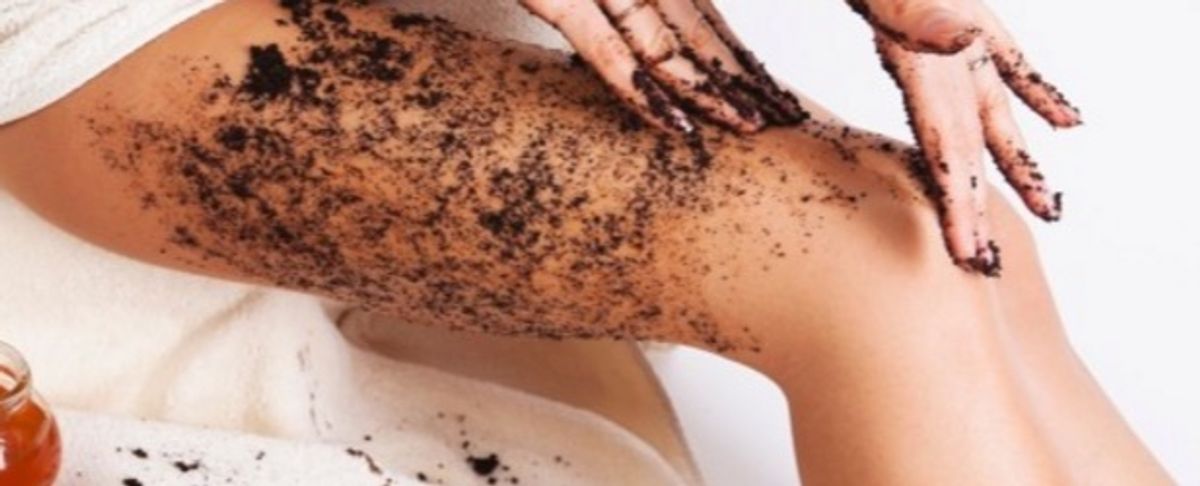A small bit of research has indicated that coffee can be lethal to mosquito larvae if applied to them in a specific manner.
Research has not shown than coffee is effective at repelling mosquitoes and preventing people from getting bitten by them.
In August 2016 concerns about the spread of the Zika virus escalated as the Centers for Disease Control (CDC) issued a warning about active Zika transmission in northern Miami. Zika exposure has been cited in the death of one Texas baby and the birth of several others afflicted with microcephaly in the United States in 2016.
Meanwhile, the Miami New Times published an article suggesting that residents could use "good old café cubano" to repel mosquitoes responsible for spreading the disease:
So how do we protect ourselves from the Zika threat? The Department of Health recommends wearing insect repellent and covering your limbs. Also make sure there's no standing water anywhere on your property. The smallest amount of water can become a breeding ground for mosquitoes and hold thousands of larvae.
There's one other way to ward off the pests: Use good ol' café cubano. In the video above, Abuela Mami, a local company that ships care packages of Cuban treats to your door, shows you how to combat mosquitoes by using coffee grounds.
In case you're wondering if there's any science to back up this claim, turns out there is. According to a study conducted by the U.S. National Library of Medicine, female mosquitoes laid fewer eggs on areas covered with coffee grounds. Also, "egg hatching success was extremely low among eggs that matured on substrates soaked with coffee extracts."
Abuela Mami, the Cuban goods importer named in the article, shared a video that instructed viewers to sprinkle coffee grounds around their yards. However, the framing of the video led many to infer that coffee grounds or other coffee extracts were meant to be applied directly to their skin in order to repel mosquitoes:
Given that coffee is present in some skin care products, it isn't likely there's much danger in applying coffee grounds to skin (save for staining clothing or smelling like a Starbucks). But neither does there seem to be much evidence suggesting coffee has much effect (if any) on mosquito-human interaction, particularly when applied topically.
A May 2015 article by The Germ Code author Jason Tetro described some of the science behind the notion that coffee can be used against mosquitoes, but primarily in the sense of its being a larvae control measure and not a topical repellant:
[C]offee has shown promise in the past. Back in 2003, it was shown to kill off the babies — larvae — of a cousin of albopictus, Aedes aegypti, the yellow fever mosquito. Although the mechanism wasn't entirely figured out, the authors at the time believed some of the chemicals in the black stuff blocked some of the important stages of development. They could not develop into adults. A closer inspection revealed some of the molecules mimicked those of insecticides. But the effect was far more dramatic and the insects could not develop resistance.
In 2012, the effects on Ae. aegypti were shown to be the same in Ae. Albopictus. In this case, the larvae were exposed to coffee extracts. Once again, the larvae were unable to develop and the population was killed off. It meant coffee could be used to keep both mosquito populations from getting out of hand.
Those findings pertained not to the matter of larger concern (i.e., keeping mature mosquitoes from biting people and infecting them with Zika), but to preventing larval mosquitoes from maturing in the first place. The information stemmed from research published by Parasites & Vectors in 2015 that examined addressing issues of coffee disposal alongside mosquito control measures. Researchers observed effects of coffee on the breeding (not the biting) of mosquitoes:
The [study's] results indicated that the presence of coffee extracts in artificial containers as breeding sites prevent females from laying substantial numbers of eggs. In addition, the presence of only oviposition sites with [coffee extracts] induced many females to retain most of their mature eggs within ovaries. In particular, this study indicated that there is a deleterious impact on the embryonic development of Ae. albopictus; eggs that matured in either [coffee extracts] or [diluted coffee extracts] environments were less viable than their counterparts that were maintained in a water-moistened environment. Finally, this study showed that females that developed successfully as larvae in a coffee environment tended to heavily oviposit in container habitats holding coffee. These results illustrate the potential of coffee extracts to assist in dengue vector control, acting both as an uninviting signal to gravid Ae. albopictus females and as a barrier to embryogenesis. These attributes suggest that coffee and its waste may be useful in developing potent, low-cost, and bio-rational mosquito control strategies. More importantly, turning coffee waste into an alternate control tool against mosquito vectors may represent a viable solution to the coffee-related pollution problem.
Unrelated research in 2005 [PDF] similarly observed coffee (and perhaps caffeine) as having an adverse effect on mosquito larvae but did not delve into application of coffee to the skin to ward off mosquito bites. Moreover, those findings reported that coffee could also serve as a possible source of nutrition for mosquito larvae:
However, the survivorship of larvae for UCG 0.01 and UCG 0.05 in comparison to the controls suggested that in nutrient-poor systems, UCG in low concentrations could benefit the larvae and boost their survivorship and hence, increase the number of larvae that successfully hatch into adults. Small amounts of UCG could enhance bacterial and algal growth, thus providing food for mosquito larvae.
In short, some evidence suggests that coffee might inhibit mosquito breeding (but also suggests that in some cases could facilitate mosquito larvae survival). The science behind coffee grounds' inhibiting mosquito life cycles is thin, and no solid scientific evidence indicates that topical application of coffee will repel Zika-carrying mosquitos.

